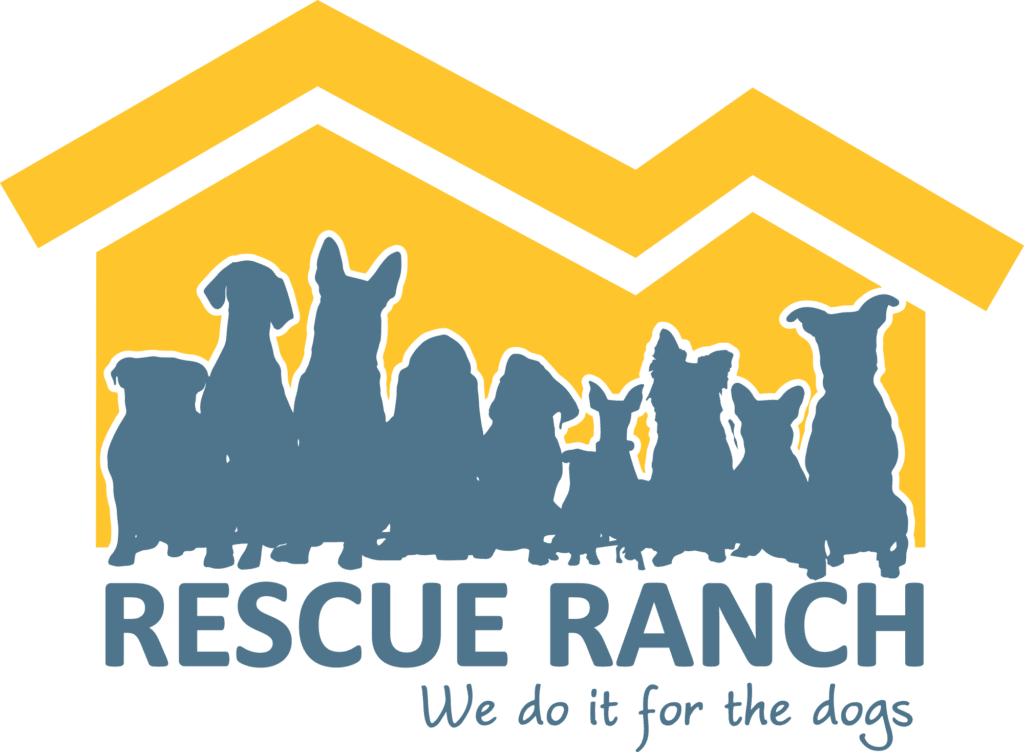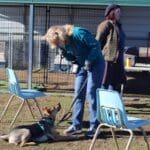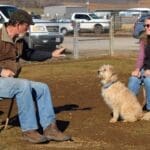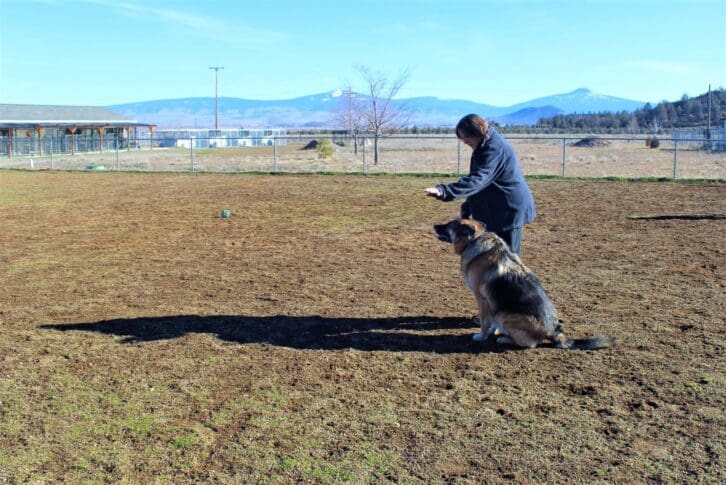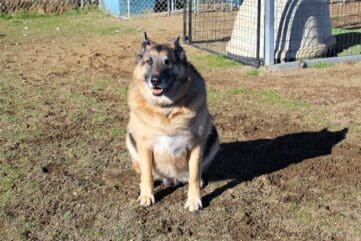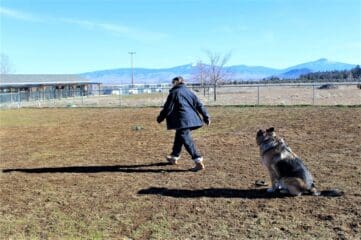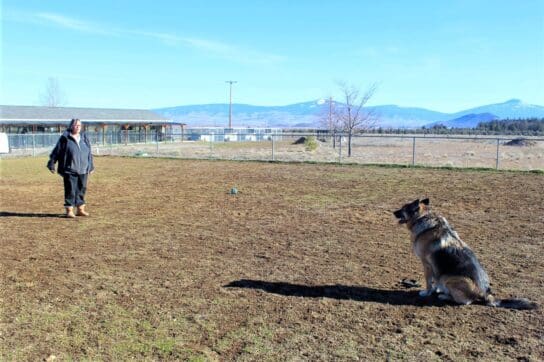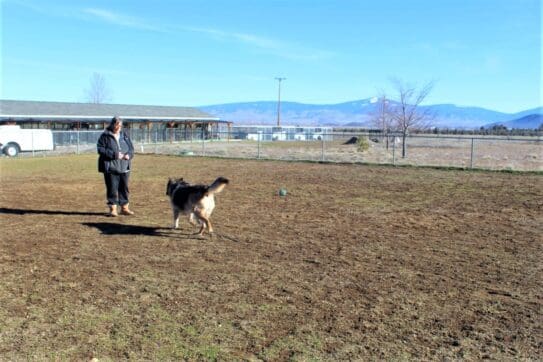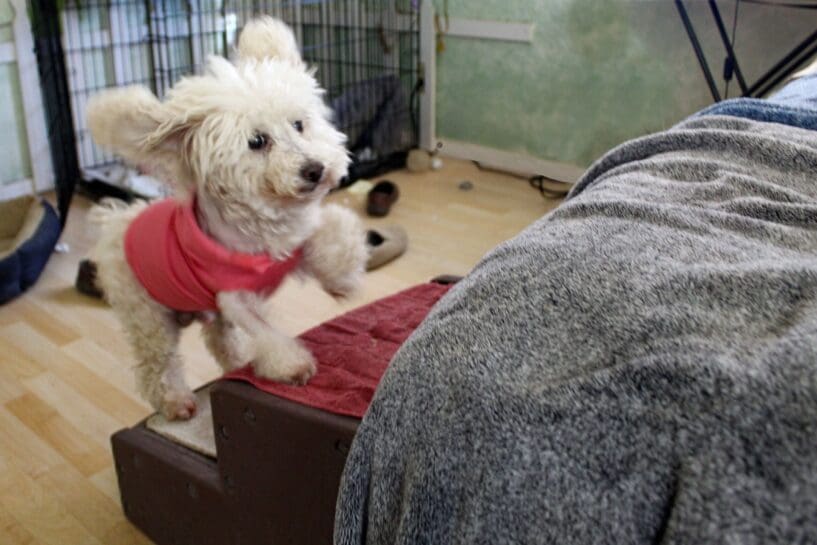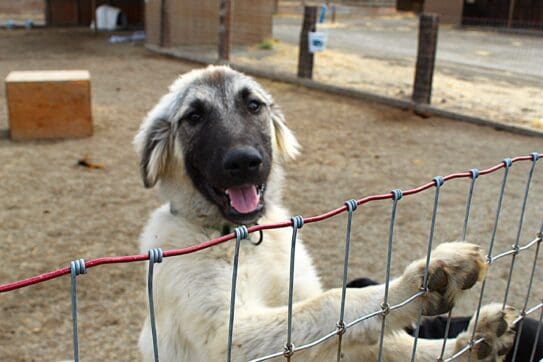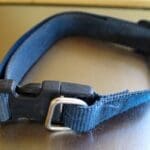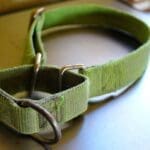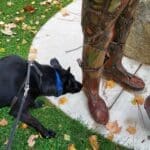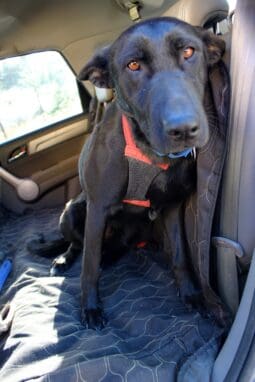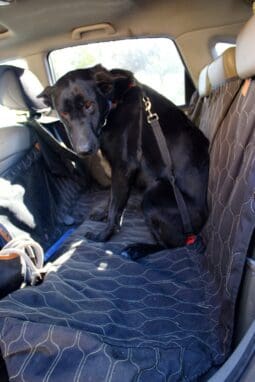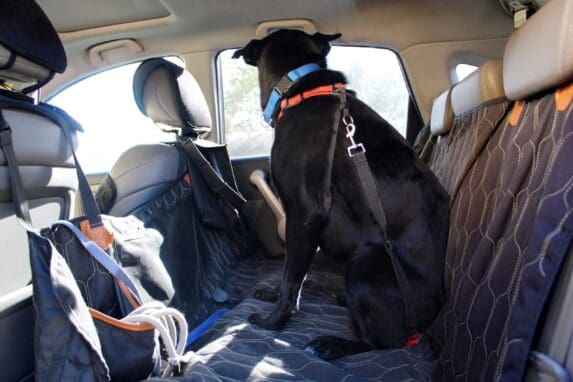October isn’t just Pit Bull Awareness Month, it’s also National Animal Safety and Protection Month! To celebrate, we’ve collected some tips to help you keep your dog safe and secure. You can’t prevent all mishaps, but focusing on safety first will help you stay alert to potential dangers, and keep your dog out of trouble.
Basic training saves lives
Basic training is essential and could save your dog’s life.
- Formal commands: “Sit,” “Down,” and “Stay” help Fido respond to you rather than her surroundings. Practising recall using “Come” or “Here” teaches her to return.
- Informal commands help too: Train your pup to “Wait” at the door or gate, so she won’t charge into harm’s way, and to “Leave it,” so she won’t ingest something toxic.
- Keep training sessions short and fun: Dogs love rewards, so pile on the praise. Practice commands in a low-distraction setting before moving on to busier environments.
Rescue Ranch offers free classes where you can troubleshoot training challenges and get advice.
Pet-proof your home inside & out
Pet-proof before bringing a new dog home, and be aware of their habits.
Indoors
- Is your dog a chewer? Check for electrical wires and other hazards.
- Use a gate to block access to unsafe areas.
- Is your dog a jumper? A footstool/ramp will assist your smaller and/or senior dog get on and off furniture.
- Is your dog a foodaholic? Keep human snacks out of reach.
- Discard damaged toys. Rescue Ranch does not recommend rope toys.
- Store chemicals, medications, and cleaners in a secure area.
Outdoors
- Dog proofing includes your yard!
- Check porches, balcony railings, and fences for gaps that smaller dogs might fit through.
- Is your railing/fence high/strong enough?
- Remove sticks and other outdoor chewing hazards.
- Cover swimming pools.
- Check regularly for environmental dangers such as foxtails, stagnant water, or toxic mushrooms.
Choose the right equipment for your dog
Since every dog is unique, the safest equipment is what works best for both of you. Here are some general tips:
- For everyday wear, flat collars are best.
- For walking, consider your dog’s behavior. High-strung dogs and puppies might be more secure in a martingale or harness. No-pull harnesses help reduce strain on your dog’s neck.
- If you walk after dark, consider a clip-on light or reflective collar.
- 6-foot leashes keep your dog close and under your control. Never use a retractable leash near traffic!
- Chain collars are for training only. Never leave a dog in a chain collar without supervision!
Preventing Accidents In and Around Cars
When it comes to safety first, you can’t be too careful around cars.
- Keep your dog calm and restrained inside the car. Larger dogs can ride safely behind a barrier, while smaller dogs might prefer a crate or car seat.
- Be aware of open windows, and never drive with a dog loose in the back of a truck!
- Teach your dog to “Wait” before unloading.
- Always exercise caution around moving vehicles.
- Always assume other drivers cannot see your dog.
